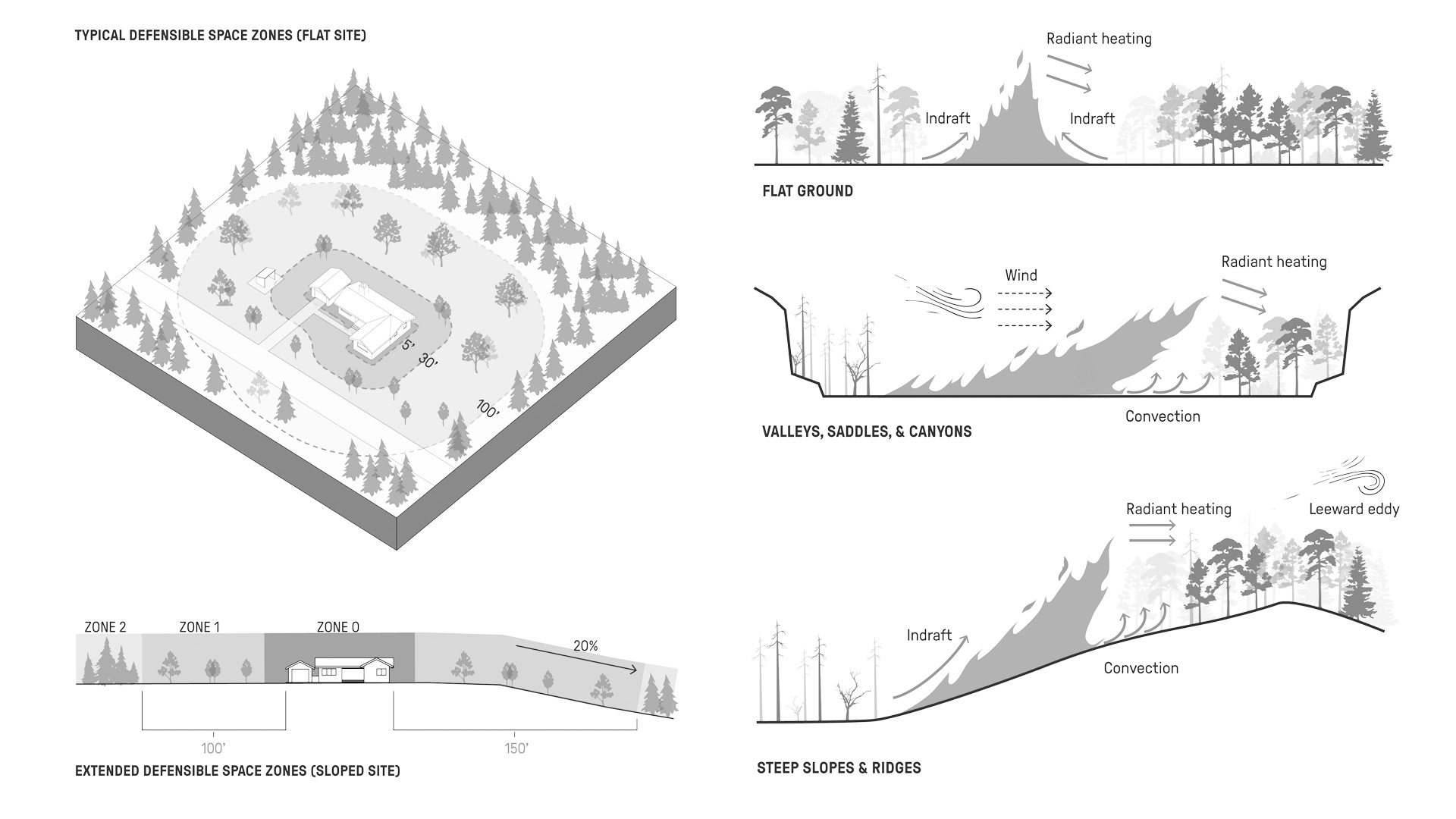
This research project analyzed the ways in which designers can influence wildfire risk at the community scale. The study focused on neighborhood urban design strategies to bridge the gap in existing knowledge between the parcel scale and the forest. The team was able to thus “urbanize” the topic of fire risk reduction, which to date has focused on single homeowners or forestry professionals. Findings were published in a booklet that clearly illustrates and spatializes six rules-of-thumb and 20 applied strategies for wildfire risk reduction at the community scale. In addition, the appendix serves as a more comprehensive repository of topical resources, guidelines, best practices, and empirical research related to each strategy. The team reviewed current literature and synthesized key information from the fields of fire science, forestry, land use planning, and emergency management in order to provide practitioners with relevant guidance. This resource will be an increasingly important design tool in fire-prone regions, as catastrophic wildfire events are projected increase in frequency and destruction. The team partnered with University of Michigan on preliminary research. This project extends SWA’s work on climate change adaptation.
RESEARCH TEAM
Jonah Susskind, XL research and innovation Lab at SWA
Alison Ecker, SWA, XL Lab
Shannon Clancy, University of Michigan
Dallas Ford, University of Michigan
Peter Rustad, University of Michigan
Rajpankaja Talkudar, University of Michigan
Ted Vuchinich, University of Michigan
Xinyi (Sydnie) Zhang, University of Pennsylvania
Harrison Raine, UC Berkeley
THANKS TO
Carly O’Connell, Pitkin County Open Space and Trails
Lisa DuRussel, University of Michigan
Joe Runco, Gerdo Aquino, Sean O’Malley, Liz Batchelder, and Paul Wehby, SWA
Molly Mowery, Community Wildfire Planning Center
Greg Kochanowski, The Wild: A Research Lab
Max Moritz, UC Santa Barbara
Anya Domlesky, XL research and innovation Lab at SWA
FEATURED
University of Toronto
The John H. Daniels Faculty of Architecture, Landscape, and Design Public Program
Bloomberg News/ CityLab
Harvard University Graduate School of Design
Climate by Design lecture
Council of Educators in Landscape Architecture (CELA) Conference
“Trial by Fire: Testing the 5 Models of Knowledge Generation Between Practice and Academia”
UC Berkeley, Design for Sustainability Colloquium
Driving Climate Action Through Practice-Based Research

